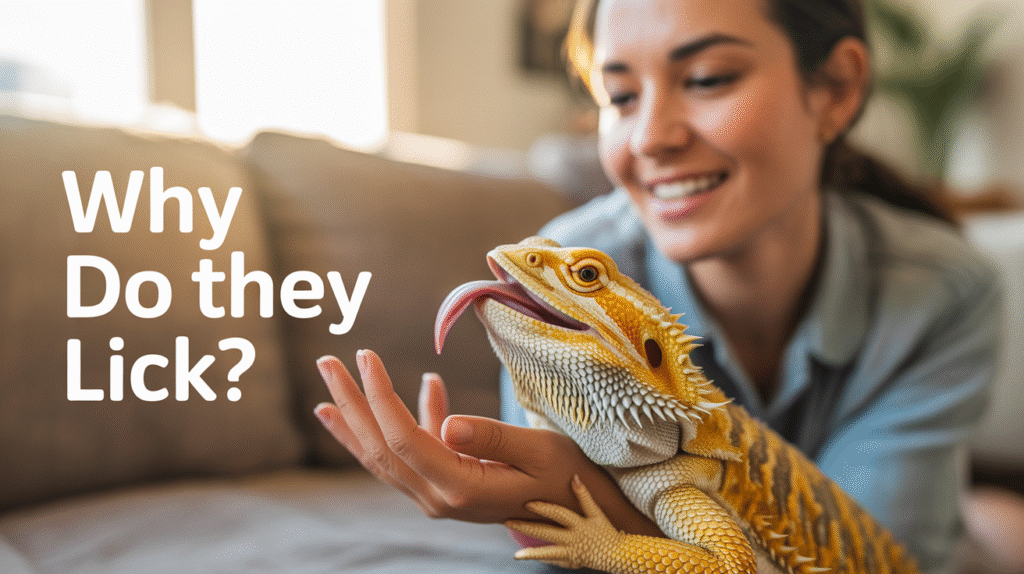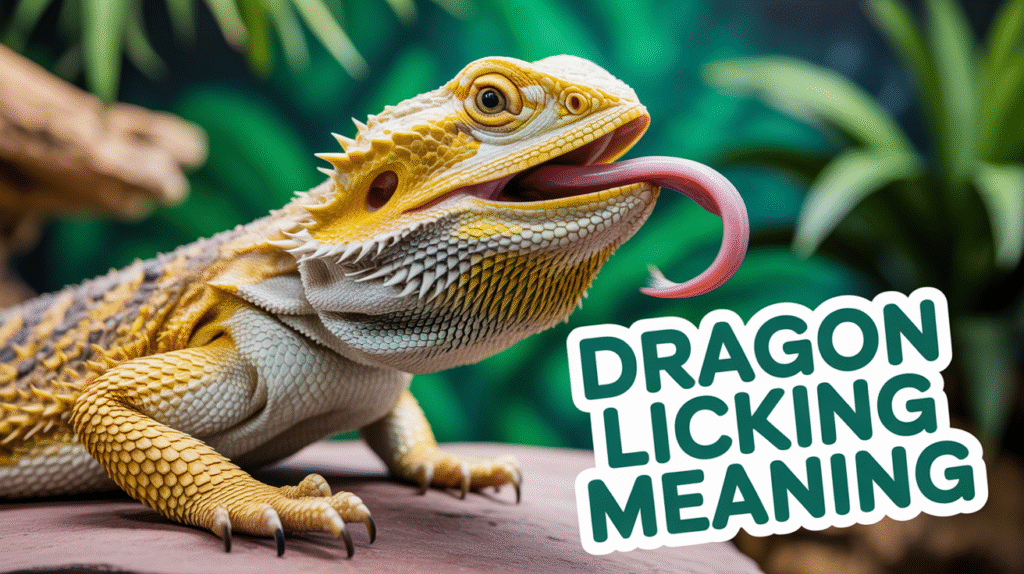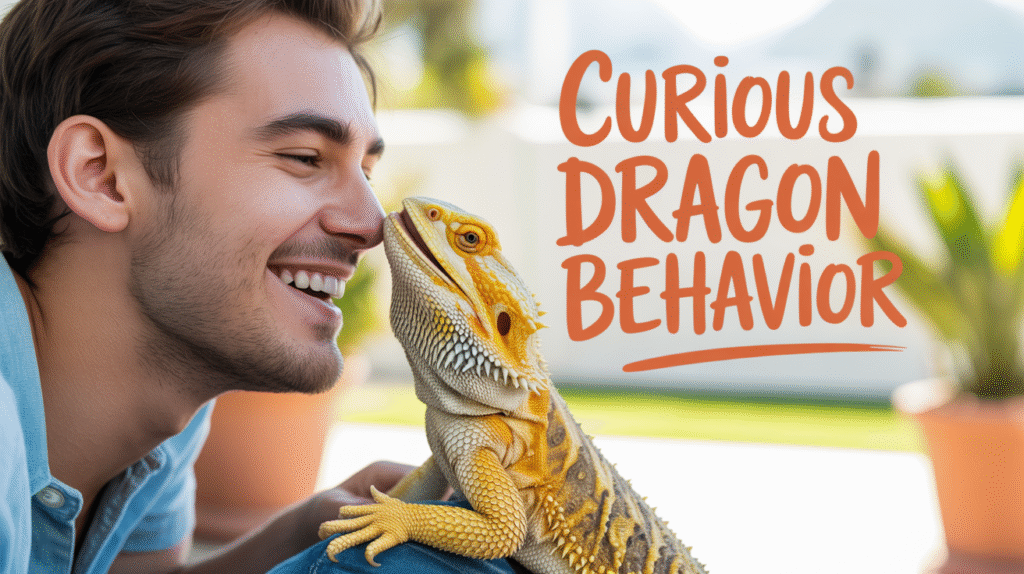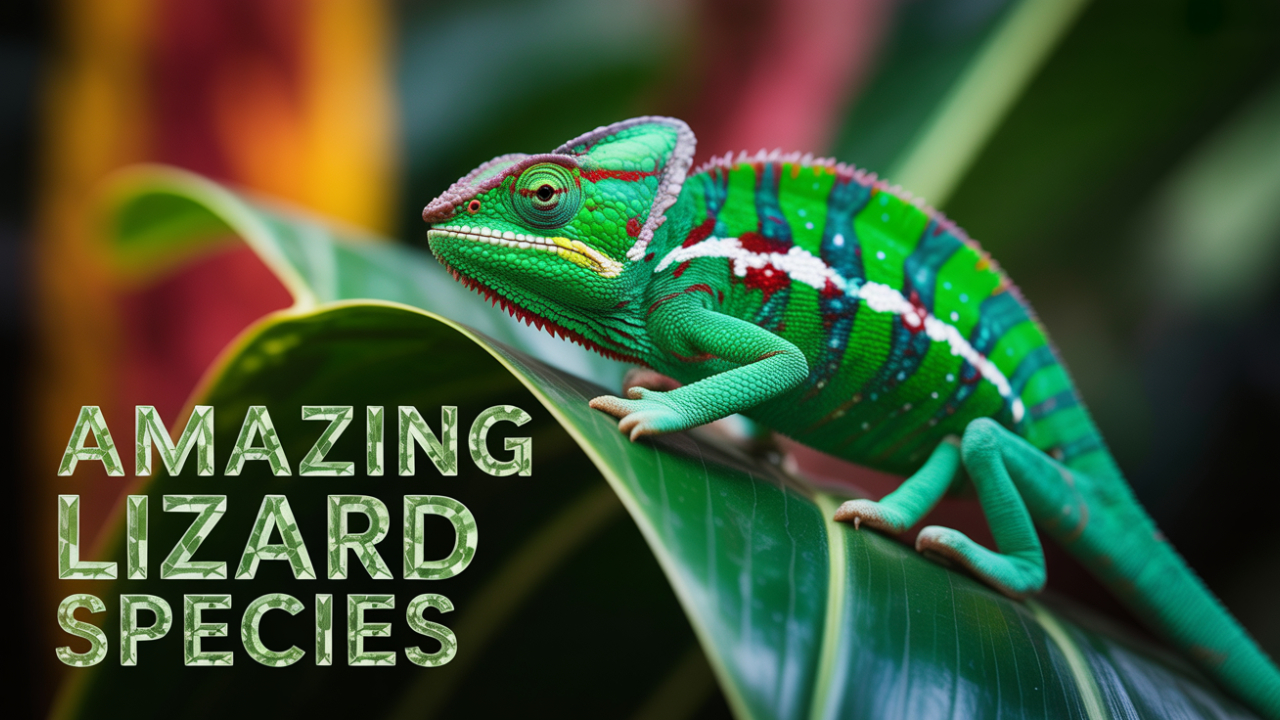Key Takeaways
- Bearded dragons lick to explore and gather information. This allows them to taste textures and pick up on chemical signals, so it’s crucial for their orientation.
- Licking is a way that these reptiles recognize edible items. Stimulate their foraging impulses with nutritious and delicious meals.
- View licking as an expression of love and reassurance — your beardie’s way of saying they want to hang with you. Responding in kind will reinforce your relationship.
- Know that by licking bearded dragons identify their owners by scent, and it builds a sense of trust and security between you.
- have them lick to explore their environment and make sure it’s safe. Watch their experience with new things!
- Watch out for over licking, which can be a sign of stress or discomfort. Act fast on any licking behavior changes.
This can be a sign of curiosity, as these reptiles tongue-flick the air to taste it and discern scents. Licking can be an indication of trust and comfort in their environment. Knowing the meaning of this small gesture will help you develop an even closer connection with your pet and make you a more informed dragon owner.
Why Your Bearded Dragon Licks

Decoding your bearded dragon’s licks can open up a captivating universe of tongue-based communication. Licking does everything from information collecting to comfort behaviors, and understanding them improves your connection with your pet.
1. Sensory Tool
Licking is how bearded dragons primarily collect information about their environment. When they lick something, they deposit minute particles to their Jacobson’s organ, in the roof of their mouth. This enables them to ‘smell’ back through taste to better comprehend the world.
Bearded dragons have specialized organs that increase their sensitivity to chemical stimuli. Their tongues gather dust and chemicals and they analyze it. This process is key to exploring their surroundings. For example, when a bearded dragon investigates a new rock or branch, licking helps it test it out.
2. Food Search
Licking is crucial in their food hunt. Bearded dragons might lick things to see if they’re something to eat. If they discover a new food or treat, their licking means they’re curious and excited to try it out. This instinct can drive them to explore new greens or bugs introduced in their environment.
Providing diverse, healthy treats can appease their hunting instincts. TIP: Tease your dragon into trying new foods by introducing them in novel ways. This both piques their interest and can expand their diet.
3. Social Signal
Licking can be a sign of affection and comfort from your bearded dragon. When they lick you, it could mean that they want some bonding time. This makes them emotionally attached to their owners, like a dog coming for attention.
Reciprocate their lick with a tender grasp and you’re on your way to a beautiful bond. In time, as they grow to be more comfortable around you, they might lick more often, denoting a greater sense of trust and an intention for companionship.
4. Owner Recognition
Licking assists bearded dragons in recognizing their owners by scent. This builds trust and familiarity—qualities that make a good bond. When your beardie licks you, it’s not just a curious investigation—it’s a means of both solidifying that bond.
Frequent interaction increases their familiarity and ease. As they mature, they’ll act different. They typically relax and begin enjoying being held, particularly if they ‘connect’ your visit with being fed.
5. Environmental Check
Additionally, licking is a way for bearded dragons to sense their environment for danger. Or they lick to get acquainted with new items or changes in their environment. This allows them to catch wind of danger or new smells.
Keeping a watchful eye on their introduction to new things can keep them safe! If you’ve added a new decoration or change in their habitat, watching their licking can help you understand how comfortable or safe they feel.
The Science of a Lick

So when a bearded dragon licks, it’s not just whimsy–it’s a really cool lick, grounded in biology and instinct. Licking isn’t just about taste, but everything from environmental exploration to communication– and understanding these mechanisms can provide us with a window into the lives of these fascinating reptiles.
Bearded dragons possess an interesting biological trait called Jacobson’s organ, situated in the roof of their mouth. This nose is vital for dealing with chemical cues from their environment. When a dragon licks, it picks up scent particles on its tongue and deposits them onto this organ. It allows them to recognize other animals, evaluate meals, and measure their surroundings. For example, a bearded dragon may lick a surface to collect data on other bearded dragons around them during the mating season.
Licking isn’t merely informational–it’s instinctual territorialism. Males, especially during mating season, might lick more, as a means of asserting their presence and jockeying with other males. Over-licking, on the other hand, can mean territory wars, dragons fighting for top spot. If you have more than one beardie, you may see increased licking behavior while they type out their status updates to one another.
Adding an additional layer to this behavior is that it’s great for socializing, even with human caregivers. Bearded dragons aren’t exactly capable of love, but that doesn’t mean they can’t show you some affection through licking. It’s their way of interacting with their world and the people in it. A bearded dragon could lick a hand or some object in its vicinity to investigate textures or scents, enriching their experience of their environment.
Hunger, for example, can drive licking. If they associate tastes or textures with food, a bearded dragon will lick to be fed. This act illustrates their versatility and eagerness to engage their environment for nourishment.
The frequency and context of licking can vary significantly based on age, sex, and individual personality. Younger dragons may lick more as they explore, while older dragons may use licking more strategically for territory marking or environmental assessment.
Decoding Lick Variations
Understanding why your bearded dragon licks you involves recognizing the different styles of licking and what they mean. Bearded dragons have a special method for collecting intel through their licks. They employ a chartreuse organ on the roof of their mouth to smell chemical cues. This chapter explores licking styles and their interpretations.
Quick Flick
Rapid tongue flicks tend to be indicators of inquisitiveness or enthusiasm. You may observe this behavior when your beardie experiences new stimuli or aromas. Say, you present a new toy or different food, your pet could participate in rapid flicking. As well as an interest in getting to know their environment.
Offering variety to their world, whether that be varying textures or secure items to explore, can stimulate this behavior. By watching these rapid flicks, you’ll witness how your bearded dragon engages with its surroundings, creating a captivating pet experience.
Slow Lick
Slow licks typically indicate contentment in your beardie. This habit is common during cuddle sessions when they are relaxed in your company. For instance, when you’re soothing your pup, you might observe some sluggish licks as they relax. These licks are a sign that they’re happy and feel safe in their surroundings, which is key to developing a good relationship with your furry friend!
To cultivate these moments, establish a peaceful and safe environment for your bearded dragon. Maybe a snug hide or a warm sunning rock. The more at ease they become, the more you’ll notice these slow licks, which demonstrate their comfort around you.
Air Lick
Air licking is interest in air borne scents. This occurs when your bearded dragon is investigating new territory. For instance, if you bring them out or into a new room, they could do some air licking to check it out. This can be to indicate interest in possible prey nearby, as they use their Jacobson’s organ to ‘taste’ them.
By promoting safe exploration, your bearded dragon can examine new surroundings and learn about their world. Keep in mind, licking is instinctual to them, assisting them in collecting critical details about their environment and the odors within it. This can be accentuated if you have several bearded dragons in the same room who lick to assert dominance.
When Licking Signals Trouble
Licking is occasionally a bearded dragon’s way of communicating, but context is key. When licking signals trouble. Unlike the odd tongue flick, persistent licking can foreshadow much worse problems that need to be solved.
Watch for changes in your bearded dragon’s licking. If they lick excessively, it could be a distress signal, an expression of discomfort or even a health issue. Imagine for instance that your feline friend is licking incessantly – it could be attempting to understand his environment, or it may be suffering from stress brought on by environmental changes. Remember, a new lick is not to be disregarded.
Common signs of stress or discomfort in bearded dragons include:
- Excessive licking
- Hiding or staying in one spot for long periods
- Lack of appetite
- Aggressive behavior or sudden mood swings
- Basking more than usual without moving
If you see these signs along with increased licking, it’s time to take a look around. Temperature, humidity, and lighting all can affect your dragon. If the basking spot is too hot or too cool, or if the humidity is off, your dragon might not be comfortable, which causes stress and behavioral changes.
Addressing these underlying issues is essential. Start by evaluating the habitat. Ensure that the temperature gradients are appropriate and that there are suitable hiding spots for your pet. Consider the stressors in the environment, like loud noises or the presence of other pets.
If you’ve eliminated environmental variables and the licking remains persistent, it may be time to call in the vet. Health problems can arise in many ways and an expert can help you pinpoint any hidden medical issues. So, remember, striking when you see strange is the way to save your bearded dragon any possible suffering.
Common Licking Misconceptions
We all hear that when your bearded dragon licks, that it must be aggression or dominance. This misconception causes you to misread their behavior. Actually, licking isn’t an expression of dominance. Instead, it provides these reptiles with a means of environmental and informational exploration. Like many reptiles, bearded dragons tongue-flick the air, which allows them to taste scents and their environment. For example, when a bearded dragon licks your hand, it’s not an aggressive dragon, it’s attempting to educate itself about your personal scent.
Considering licking as a largely communicative and exploratory activity can transform the way we view our engagement with these reptiles. Bearded dragons have a strong sense of smell and licking aids them in understanding what’s around them. They may lick to get a sense of a novel item in their environment or even your mood. Think of a little kid looking at a new toy, your beardie is just ‘getting a lay of the land’ with his taste and smell senses. They tend to get this way particularly when they find themselves in new places or smelling unfamiliar humans.
There are multiple reasons why your bearded dragon might lick you, and they all can reveal different things about how your dragon is feeling. Take a bearded dragon — they may lick when they feel comfortable and secure, as a bonding action. If your pup’s licking is more intense or recurring, it could indicate inquisitiveness or even an attempt at dialogue. Understanding these nuances can help you greatly in your relationship with your fur friend. Pay attention to their body language and demeanor when they lick.
How to Respond Safely
When your pet does this, it can indicate interest, seek attention, or even explore their environment. Responding safely is important for both you and your bearded dragon’s comfort.
First, how to respond safely when your bearded dragon licks you. BE calm and relaxed. Your energy will affect how your dragon feels. If you appear nervous, it will stress them. Don’t grab or surprise them – it can scare your pet. Instead, allow them to discover on their own speed. Do extend your hand slowly, let them come to you. This demonstrates you’re open to engagement. Don’t apply fragrance lotion or heavy chemical on your hands prior to holding, this may irritate their sensitive skin.
Please wash your hands before engaging. This easy step keeps chemical or unknown scents from getting on your bearded dragon. Make sure to use mild soap and rinse it well. Even aromas from food make them see you differently. For instance, if you just had garlic, your dragon might respond one way as opposed to if you washed after a light meal. Clean hands make it safer for you to respond.
Adding enrichment activities will (literally) change your dragon’s behavior. Boredom causes destructive behaviors, such as obsessive licking. Include things such as climbing branches, hideaways or even safe plants within their enclosure. These additions provide a stimulating natural environment. You can try, on occasion, offering soft fruits or vegetables, which will prompt your pet to lick, but in a healthy way, not because they’re bored.
Watching your bearded dragon’s body language and responding accordingly is really important during play. Observe for cues of comfort or distress. If they puff up, flatten their bodies, or attempt to flee it may indicate they need distance. On the flip side, if they’re attentive and inquisitive, it’s an indicator they’re loving the experience. By recognizing these signs you can generate a better experience for the both of you.
Conclusion
Knowing why your bearded dragon licks you peeks a door into their universe. There’s meaning behind this innocent behavior, from investigation to connection. Understanding what’s driving your beardies’ behavior allows you to respond more effectively and build trust. Knowing when licking indicates stress or discomfort is key to their health.
Every lick has a meaning, bonding you further to your little buddy. By listening and tickling safely, you develop a bond.
Keep an eye on your bearded dragon’s quirks. Watch their demeanor and make a cozy corner for them. All of this interaction adds up to create a long-term bond. Learn and have fun along with your scaly buddy.
Frequently Asked Questions
What does it mean when my bearded dragon licks me?
They lick with their tongues to collect information about odors and tastes.
Is licking a sign of affection in bearded dragons?
Licking is curiosity, not necessarily love. Bearded dragons lick tongues frequently to identify their environments.
Are there different types of licks in bearded dragons?
Yes, bearded dragons lick differently when in different moods. Slow, deliberate licks can mean investigation, while fast licks can mean anxiety or enthusiasm.
Can licking indicate health issues in my bearded dragon?
Yes, over-licking might indicate stress or health issues, like dehydration. Observe them and if you see them act differently, take them to the vet.
How should I respond when my bearded dragon licks me?
Don’t panic and give them room to roam! Don’t move around too much either as this can agitate them. Honor their territory and watch what they do.
Do bearded dragons lick for hydration?
Though they may lick as a form of exploration, it is not a main method of hydration. Always provide your bearded dragon with fresh water.
Is it safe to handle my bearded dragon when it licks me?
Yes, it’s safe for the most part. Just be gentle and look for stress. Make sure they feel safe in your hands.





